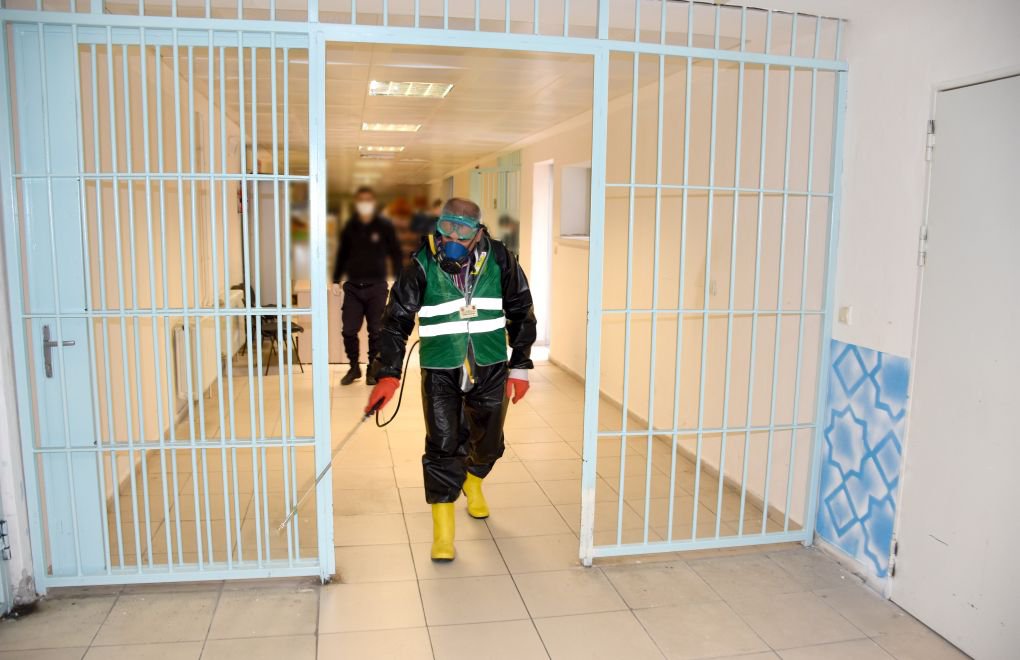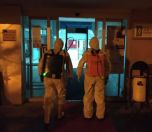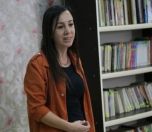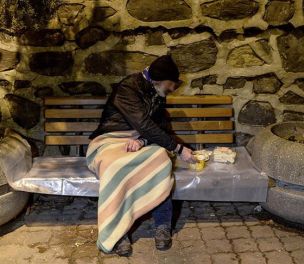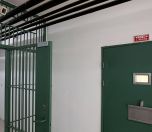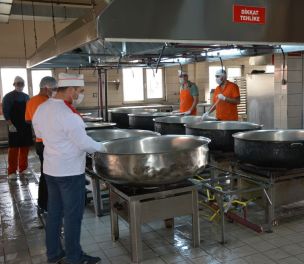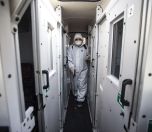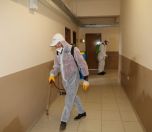* Photo: Mesut Davarcı - Kayseri / AA
Click to read the article in Turkish
The Civil Society in the Penal System (CİSST) Association has documented the risks of COVID-19 outbreak in prisons based on the complaints reported to its advisory line from March 20 to 24, 2020.
Having received applications from 26 different prisons across Turkey, three of them closed penal institutions and the remaining 23 open penal institutions, the CİSST Association has listed the complaints of prisoners that have been aggravated with the onset of the outbreak.
Extremely crowded and closed spaces
Prisoners say that their wards are crowded, their beds are standing close to each other and, so, they have to sleep close to one another, they cannot keep their social distance and a considerable number of prisoners have to gather in shared spaces and dining halls.
As the gardens of some prisons are closed at certain hours of the day due to cold weather, this closure has further limited the prisoners' room for maneuver and caused prisoners to use the same space, forcing them to stand close to one another in overcrowded prisons.
Other complaints from prisoners are as follows:
Hygiene in prisons
* While some prisons are disinfected, some are not.
* Quite a few number of prisons have disinfectants along their corridors.
* While wardens wear masks in some prisons, they do not wear them or partially wear them in some prisons.
* Wardens do not come close to prisoners except for counting and, in some prisons, prisoners are counted while standing shoulder to shoulder.
* In some prisons, wardens leave the food of prisoners at the doorstep and do not have any contact with them.
* In several prisons, cleaning is not done regularly.
* Disinfectants are sold at canteens for 10 to 45 liras.
* Dining halls are not sufficiently cleaned.
Hygiene of prisoners
* While some prison administrations hand out soaps to wards, some prisons do not have access to them.
* Prisoners are not given masks or gloves.
* Prisoners are not provided with free cleaning supplies. When they cannot afford these supplies or do not have the means to buy them, they are not given any.
* There are no disinfectants in toilets of several prisons.
* Bathrooms are dirty.
* In some prisons, a ward is allowed to have a shower only for an hour. The bathrooms remain locked at other times.
* The number of washbasins is not enough.
* Water is frequently cut off and hot water is given for a limited period.
* Prisoners are still washing their clothes in prisons' laundry rooms for a fee and there are inmates who cannot buy laundry detergents.
Quarantine conditions
* In some prisons, prisoners who returned from leave have been quarantined. In some prisons, no such precaution was taken in the beginning and prisoners kept on staying in their usual wards. But quarantine wards are actively used now.
* The rooms normally used for visitation and workshops are used as quarantine wards.
* In a number of prisons, the contact between the prisoners staying in quarantine wards and the others is cut off, they are held in bad conditions and the prisoners who returned from hospital are placed in these wards as well.
* No measures are taken for the prisoners in risk groups. The ones at a higher risk of infection and the ones who return from leave are held in the same wards.
* In some prisons, prisoners lie on the floor in quarantine wards and cannot access cleaning supplies.
* Quarantine wards are crowded and have no chance of social distancing.
* There is no doctor check, only body temperatures are taken.
* There are inmates whose body temperatures are as high as 38.5, but these prisoners are not tested.
Access to right to health
* Doctor does not come to the sick room, prisoners are not allowed to go to the sick room.
* Prisoners cannot receive medication from the sick room.
* No measures are taken for ill and old prisoners.
* Precautions are not taken for prisons with cardiac and chronic diseases. Prisoners take their own precautions.
Nutrition
* The meals served in prisons are bad, unhealthy and unhygienic.
* No supplementary food is provided.
* No vitamins are provided.
* Products sold at canteens are expensive.
* Products such as lemon, garlic and onions come in limited amounts. (AS/SD)




